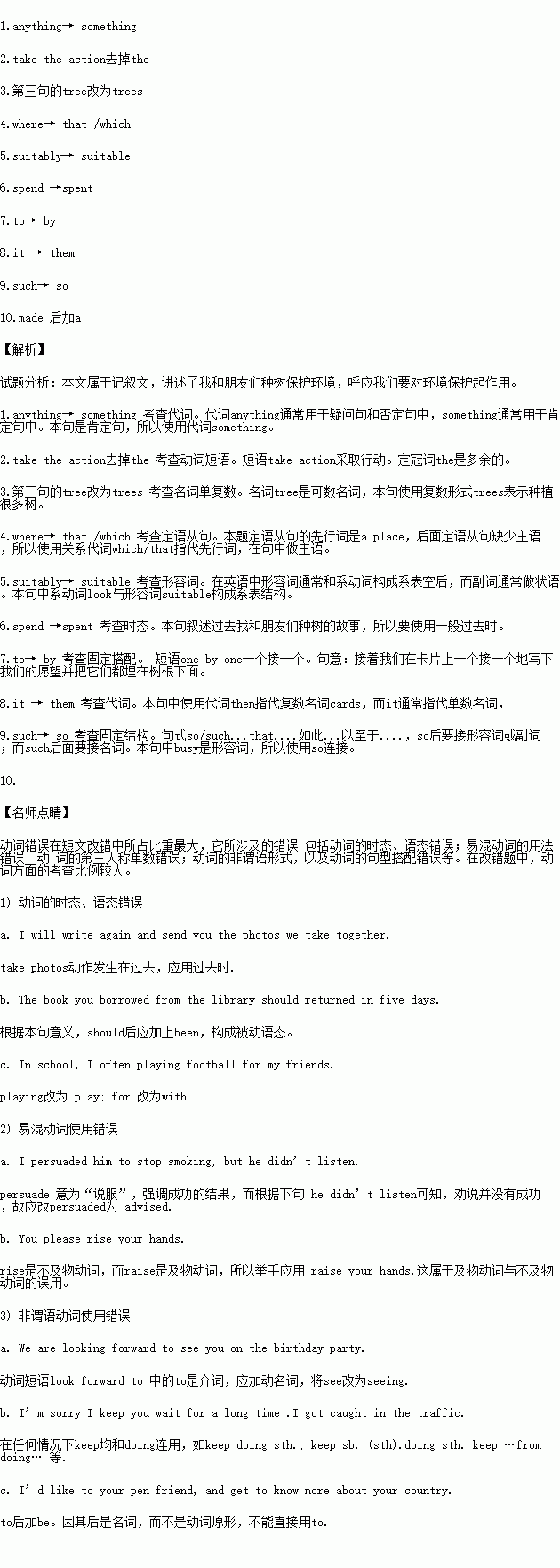题目内容
短文改错
假定英语课上老师要求同桌之间交换修改作文,请你修改你同桌写的以下作文。文中共有10处语言错误,每句中最多有两处。每处错误仅涉及一个单词的增加、删除或修改。
增加:在缺词处加一个漏字符号(∧),并在其下面写出该加的词。
删除:把多余的词用斜线(\)划掉。
修改:在错的词下画一横线,并在该词下面写出修改后的词。
注意:1.每处错误及其修改均仅限一词;
2.只允许修改10处,多者(从第11处起)不计分。
It has been a long time since I did anything good for the environment. Feeling responsible to protect the environment, I decided to take the action again. I told my idea to my friends and we planned to plant tree on the hill in the countryside. We came to the foot of the hill and selected a place where looked suitably and settled down. We spend a few hours digging holes and placing the young seedlings. Then we wrote our wishes on cards one to one and buried it deep down the roots of the trees. We also took a lot of pictures. We were such busy that we didn’t realize that it was time to go back. I felt really glad that we made difference to the environment.

